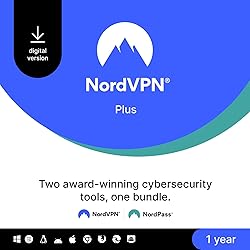VPN and Online Ads: How to Stop Being Tracked
VPN and online ads have an intricate relationship that directly impacts internet users’ privacy. Every day, as we browse websites or scroll through social media, we are exposed to countless online advertisements. While some are harmless, many are equipped with advanced tracking technologies intent on gathering as much information about us as possible—without our explicit consent. In this article, we’ll explore how a VPN can help shield you from unwanted ad tracking, what tactics online advertisers employ, and the steps you can take for real digital privacy.
Understanding the Connection Between VPNs and Online Ad Tracking
Before diving into solutions, it’s essential to recognize how advertisers track users across the web. Most online ads use tracking cookies, fingerprinting, web beacons, and even your device’s IP address to build a detailed profile of your habits, preferences, and demographics. This information is highly valuable and often sold or shared among advertisers.
A Virtual Private Network (VPN) masks your actual IP address by routing your web traffic through a remote server. This process both encrypts your data and replaces your originating IP, effectively confounding many standard advertising trackers that rely on your IP for profiling.
How Online Ads Track You Across the Internet
Online ads have become increasingly sophisticated over the years in their ability to follow users’ activities. Here are some of the most common tracking techniques:
– Cookies: Small pieces of data stored on your device that record browsing history, login status, and even preferences.
– Fingerprinting: A technique that creates a unique profile using data like browser type, operating system, fonts, and hardware details.
– Tracking Pixels/Web Beacons: Invisible images or scripts embedded within web pages or emails that alert advertisers to your activity.
– IP Address Tracking: Your device’s IP can often reveal your geographic location and can be tied to repeated visits on multiple websites.
By bypassing or scrambling some of this information, you can limit advertisers’ ability to build comprehensive profiles.
Using VPN to Prevent Online Ad Tracking
A VPN serves as one of the most effective tools in protecting against unwanted tracking, especially when it comes to online ads. Here’s how:
1. Masking Your IP Address
When connected to a VPN, your real IP address is hidden from websites and ad networks, replaced with the address of the VPN server you’ve chosen. This step is fundamental, as it adds an immediate layer of anonymity and severs the link between your actual identity and your activities online.
2. Encrypting Your Online Activity
VPNs encrypt all data traffic between your device and the server, making it highly challenging for third parties—including advertisers—to eavesdrop on your browsing behavior. This encryption helps prevent the leakage of sensitive data that could otherwise be exploited for targeted advertising.
3. Bypassing Geo-Location Tracking
Many ads are geo-targeted. By allowing you to choose a server from a different country, a VPN enables you to sidestep location-based tracking and advertising.
Additional Ways to Stop Being Tracked by Online Ads
While VPNs are a crucial element in the fight for privacy, combining them with other tools and good practices will maximize your protection:
– Browser Extensions: Tools like uBlock Origin, Privacy Badger, and Ghostery actively block trackers and suspicious scripts.
– Private Browsers: Consider using browsers with a focus on privacy, such as Firefox, Brave, or Tor.
– Regular Cookie Deletion: Clear your cookies regularly to disrupt long-term tracking.
– Disable Third-Party Cookies: Most browsers allow disabling these in settings, which prevents many ad networks from tracking you profile across sites.
– Adjust Privacy Settings: Tweak your device and app privacy settings frequently to restrict access to your data.
Is a VPN Enough?
It’s important to remember that VPNs are not a panacea. While they’re excellent at securing your data and masking your identity, some advanced forms of tracking—like browser fingerprinting—can still potentially identify you. For comprehensive security, a layered strategy combining VPNs, privacy-focused browsers, and anti-tracking extensions works best.
Conclusion
In today’s data-driven digital landscape, safeguarding your privacy from intrusive online ads is more crucial than ever. Employing a VPN is a powerful step towards achieving genuine anonymity and stopping advertisers from tracking and profiling you. By understanding the nuances of how tracking works and employing a mix of technological tools and mindful browsing habits, you can protect your personal information and reclaim control over your online experience.


